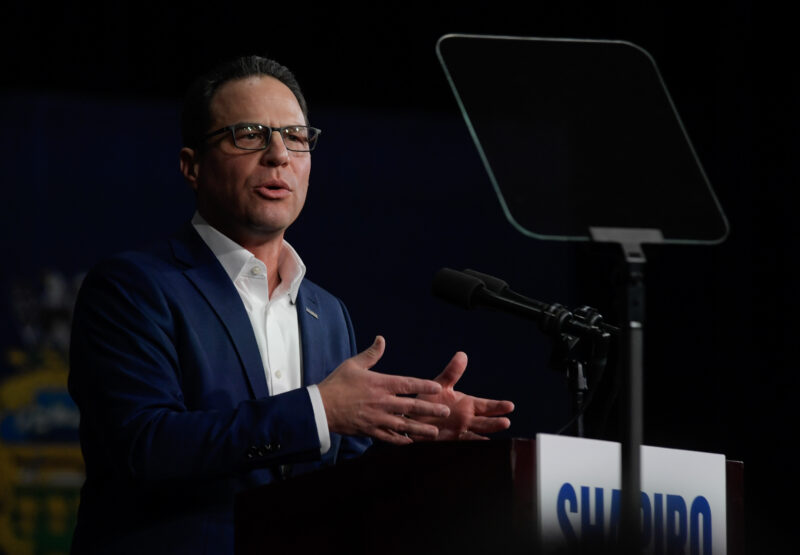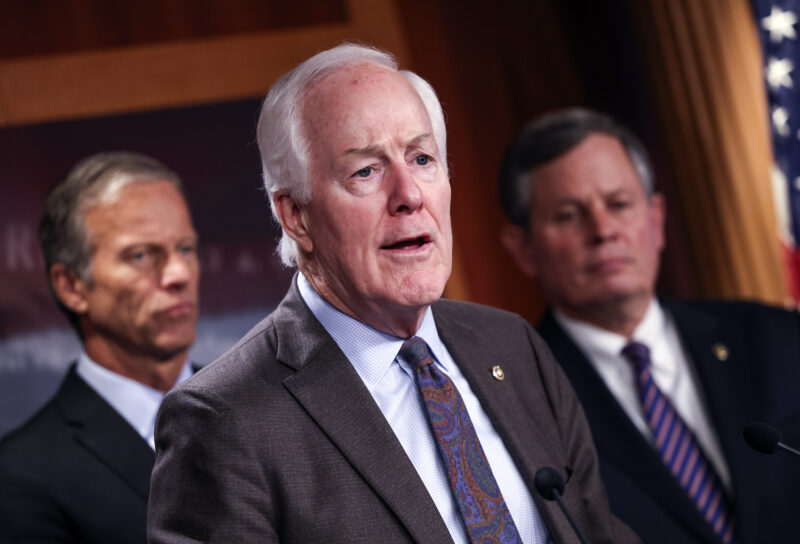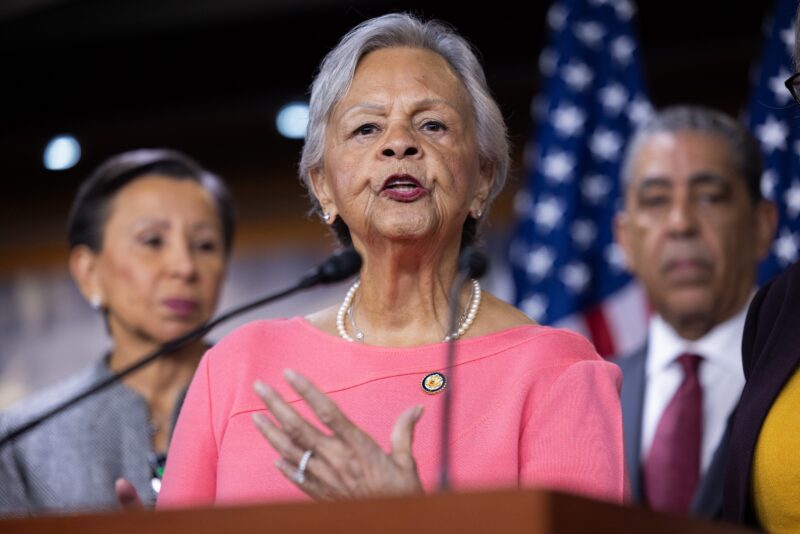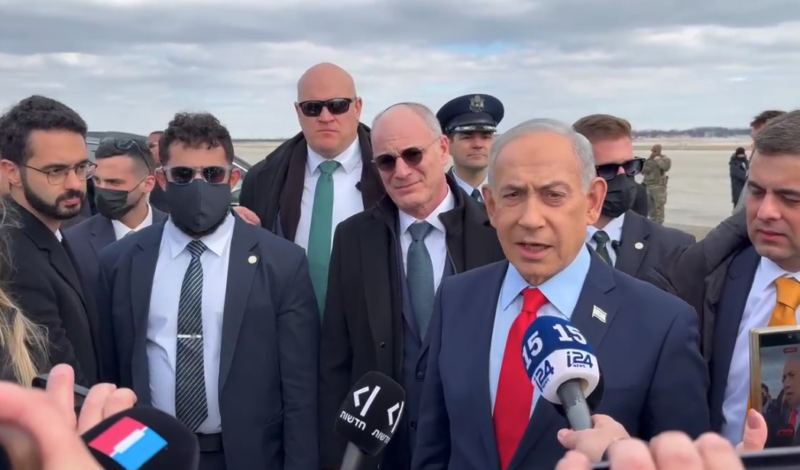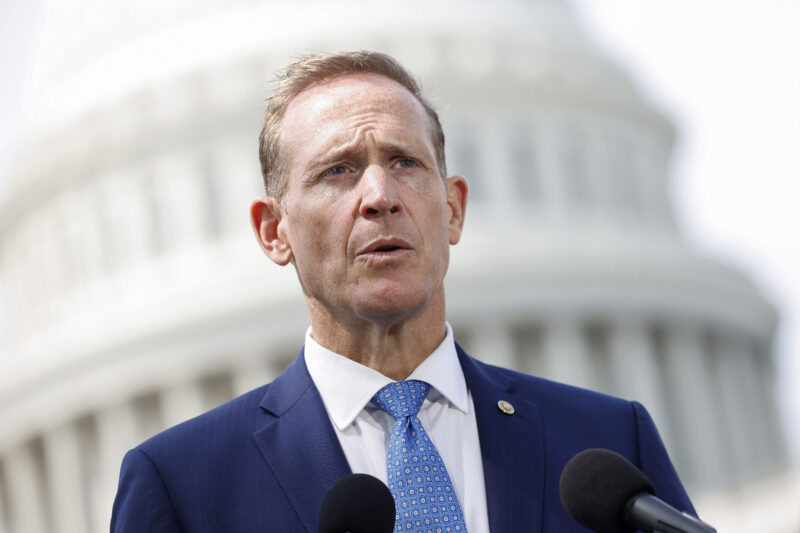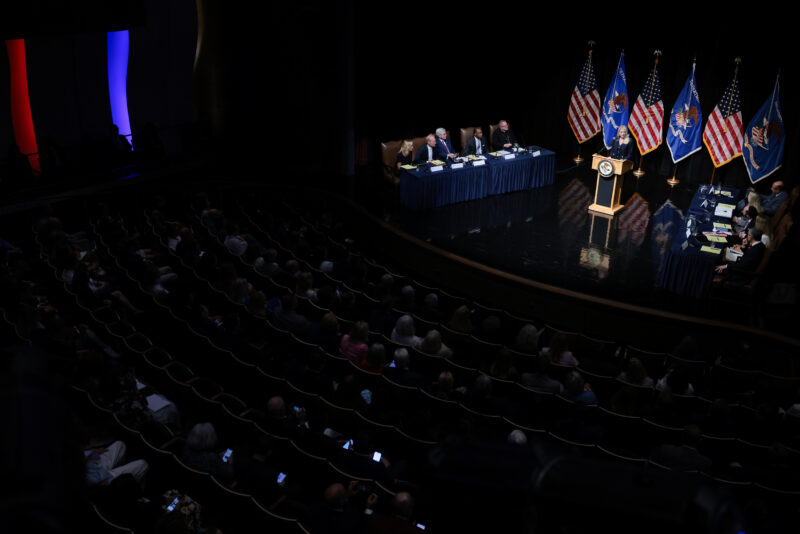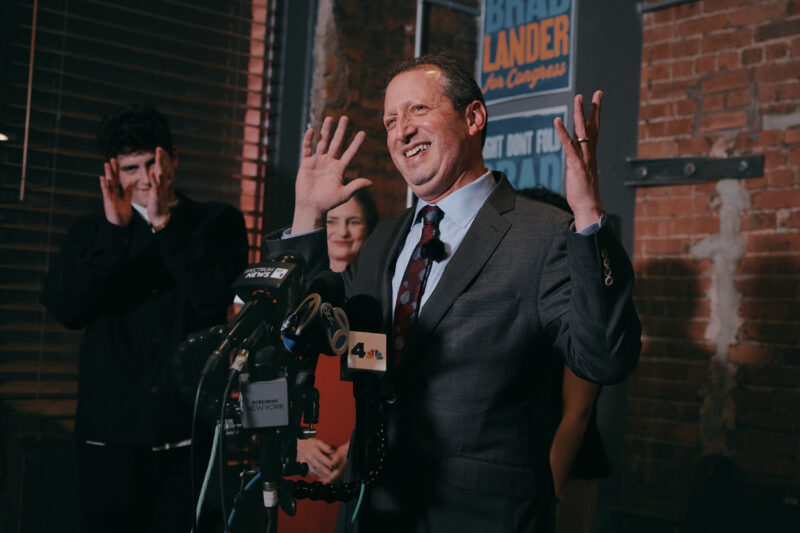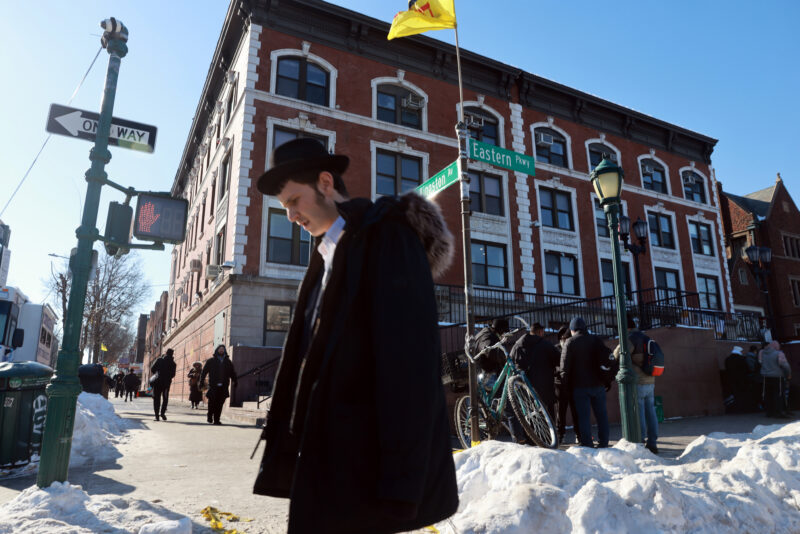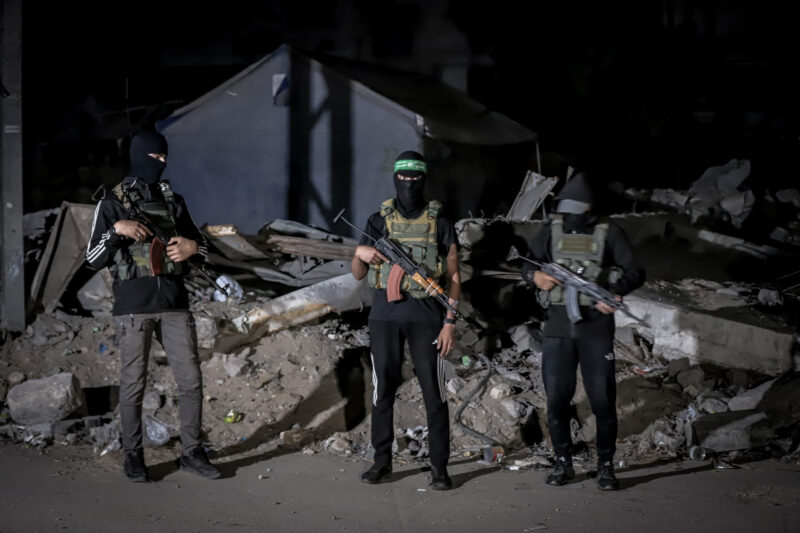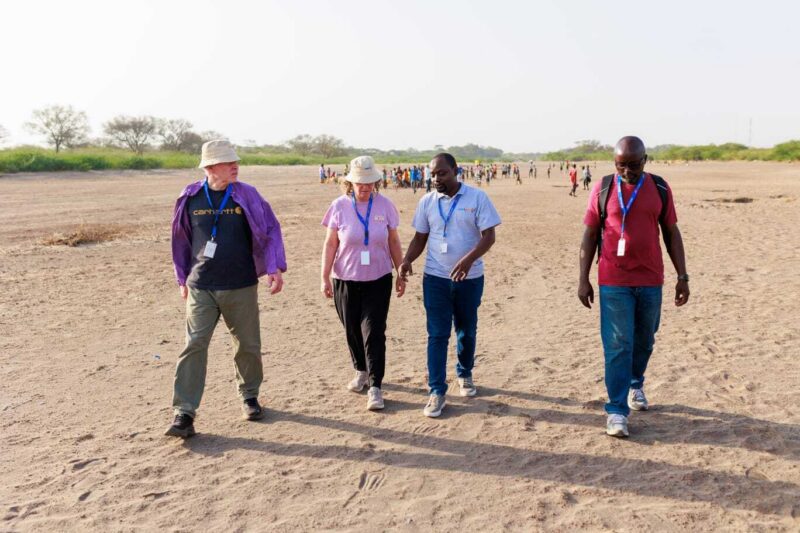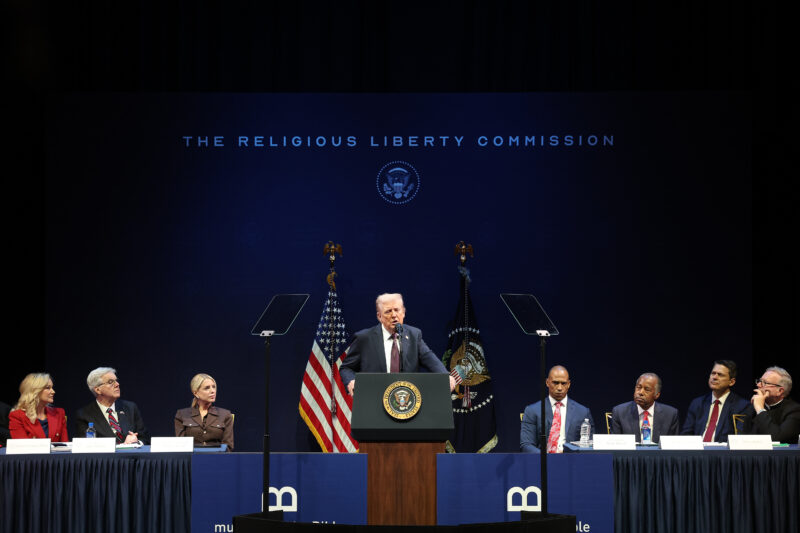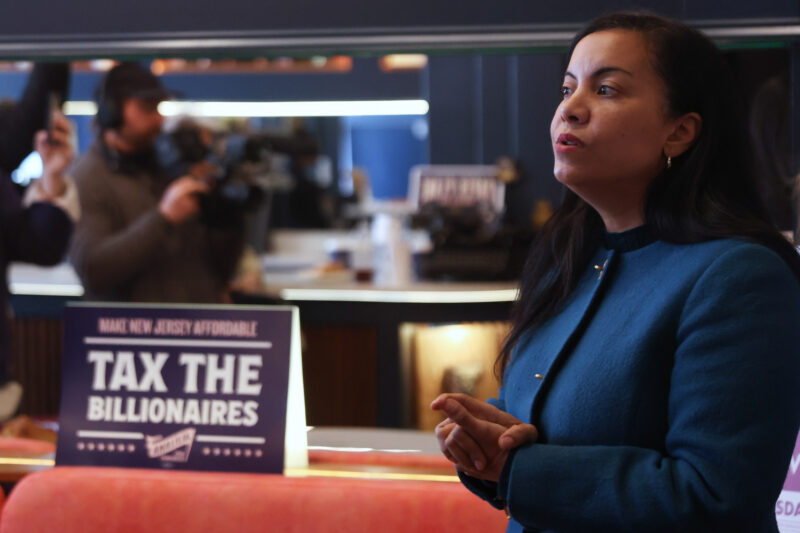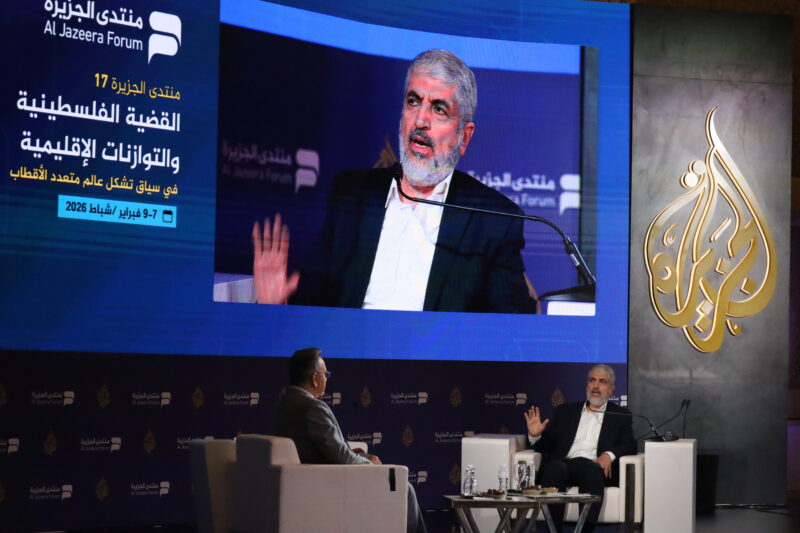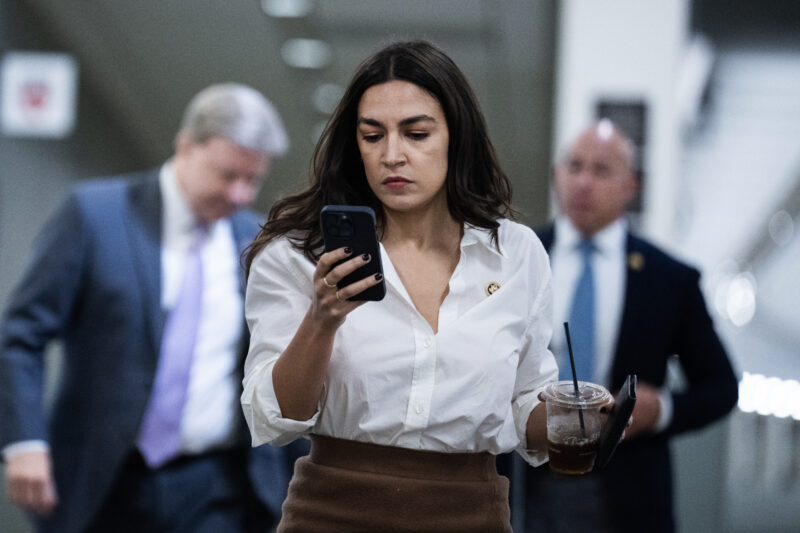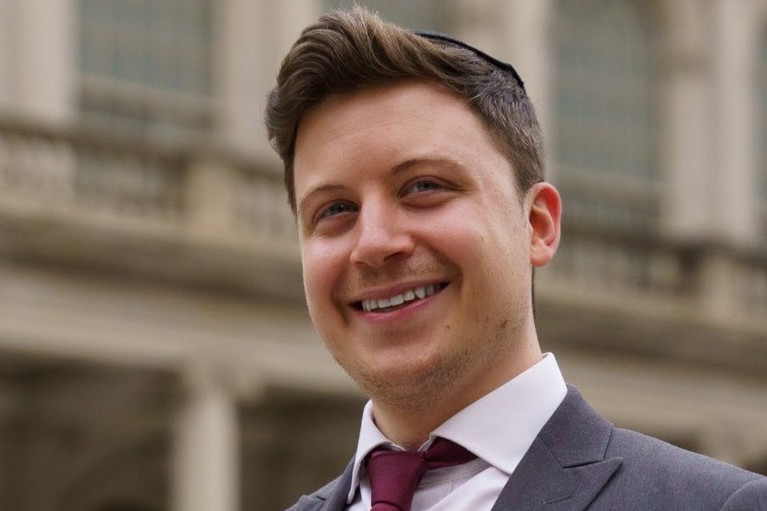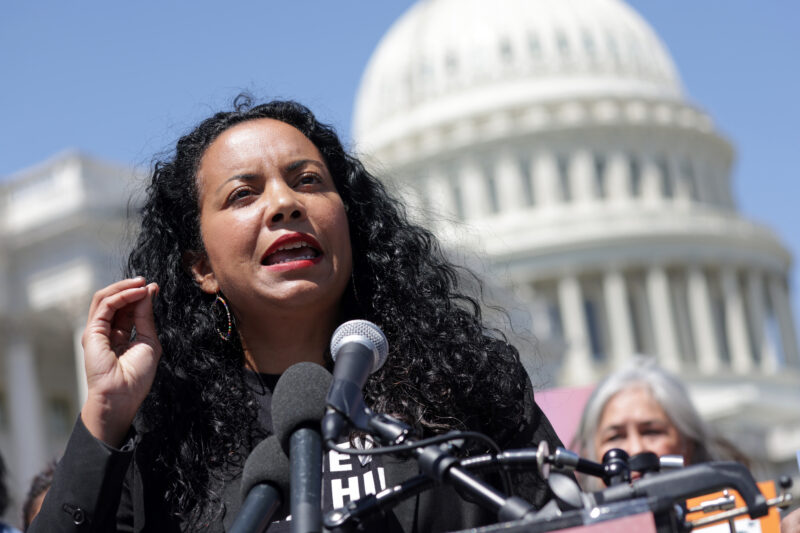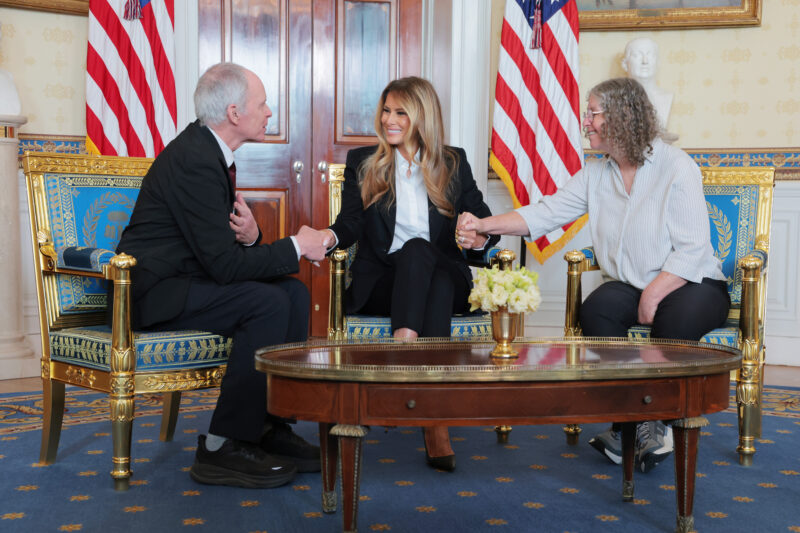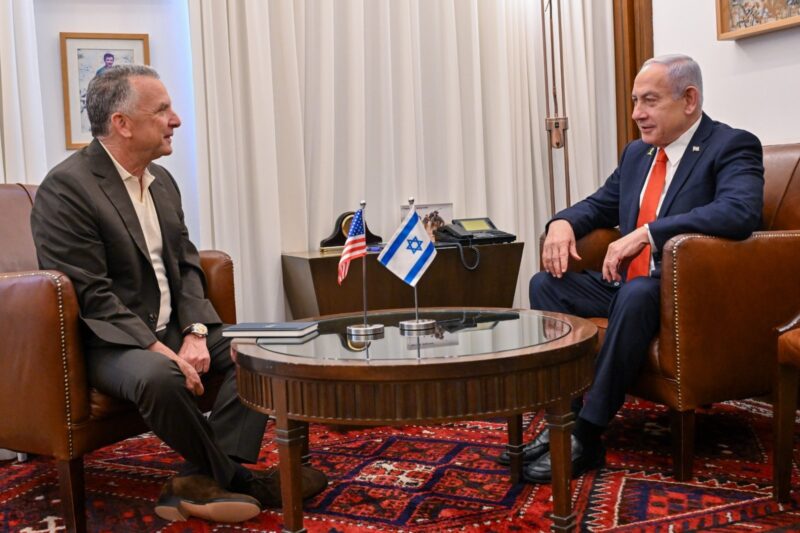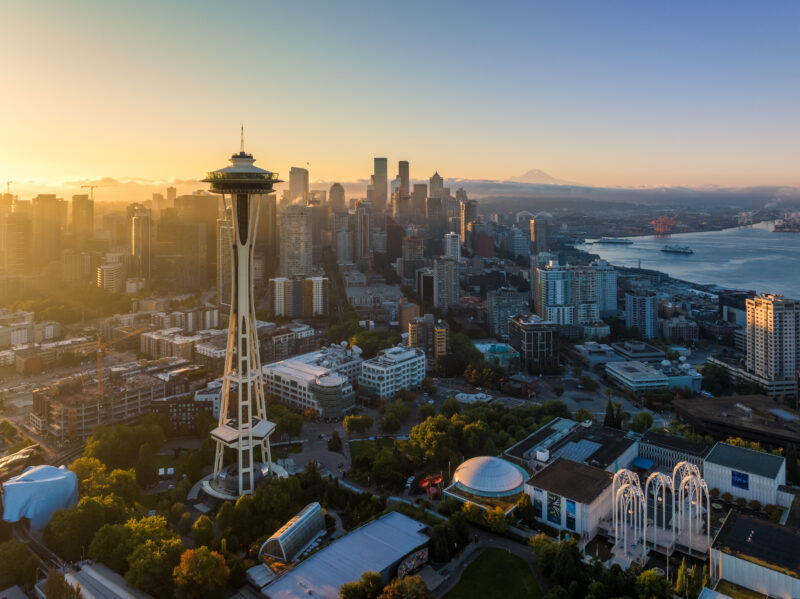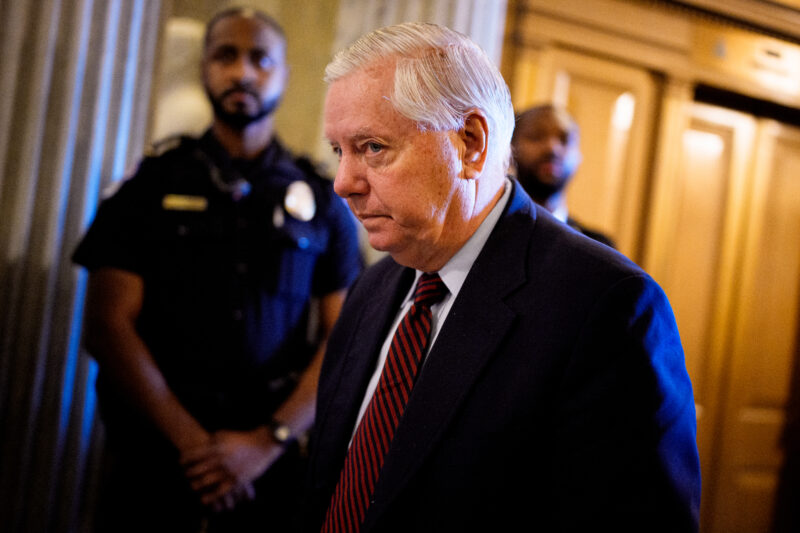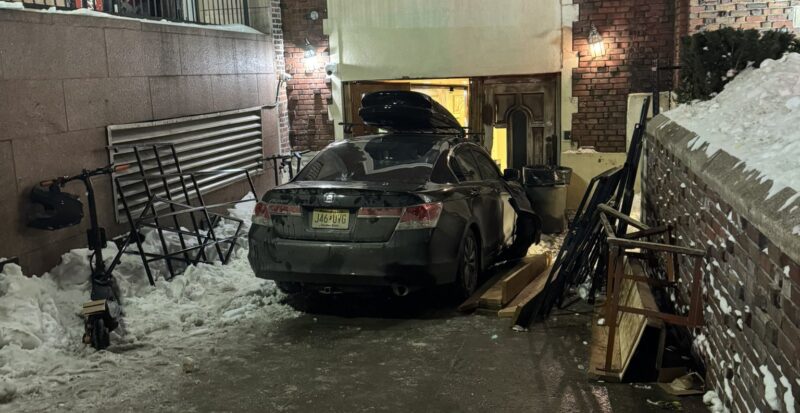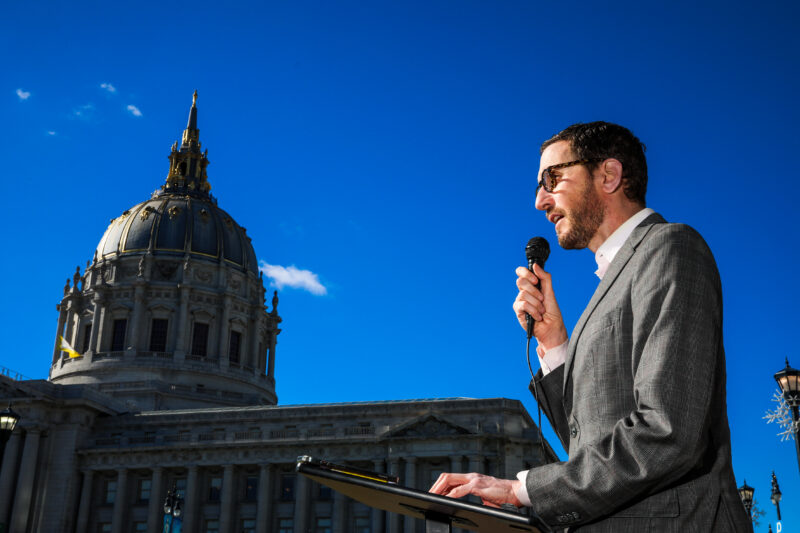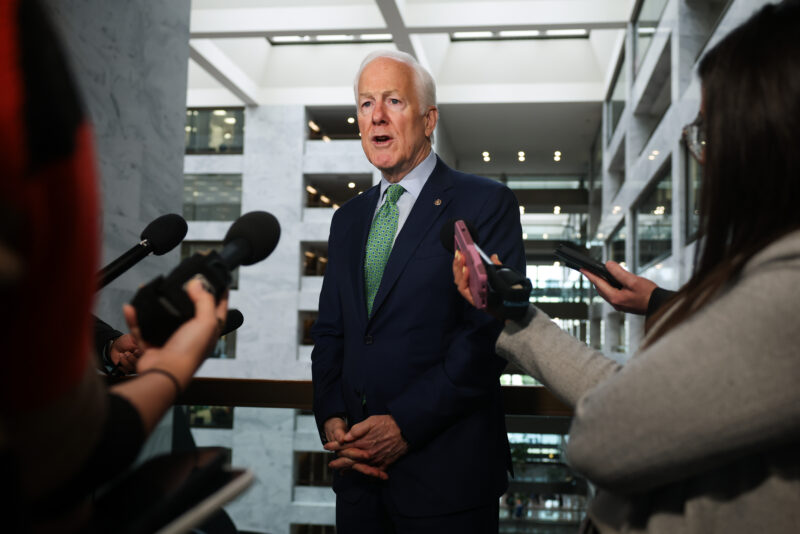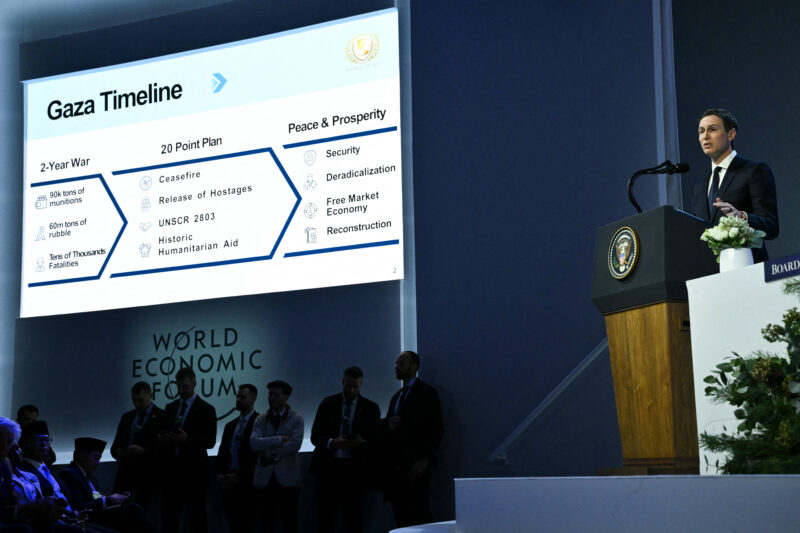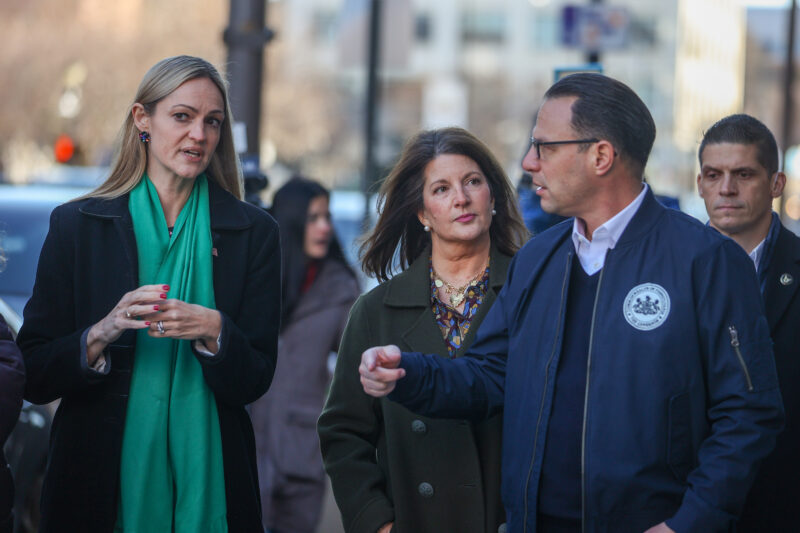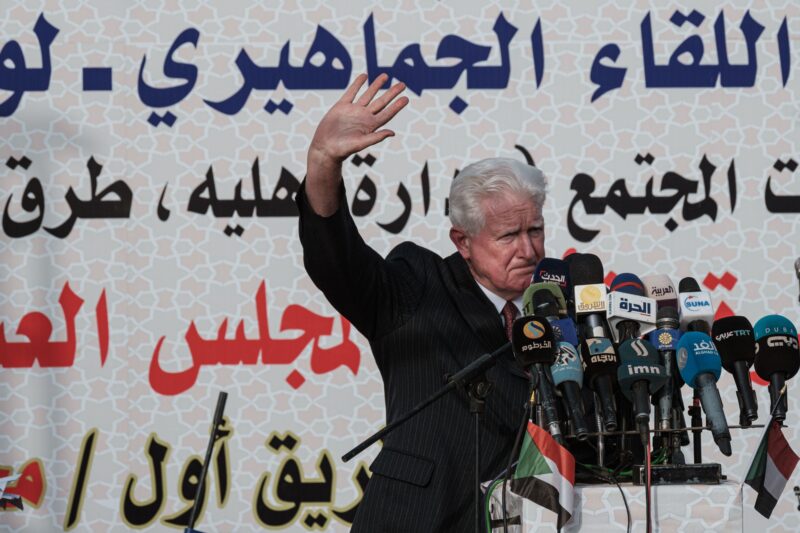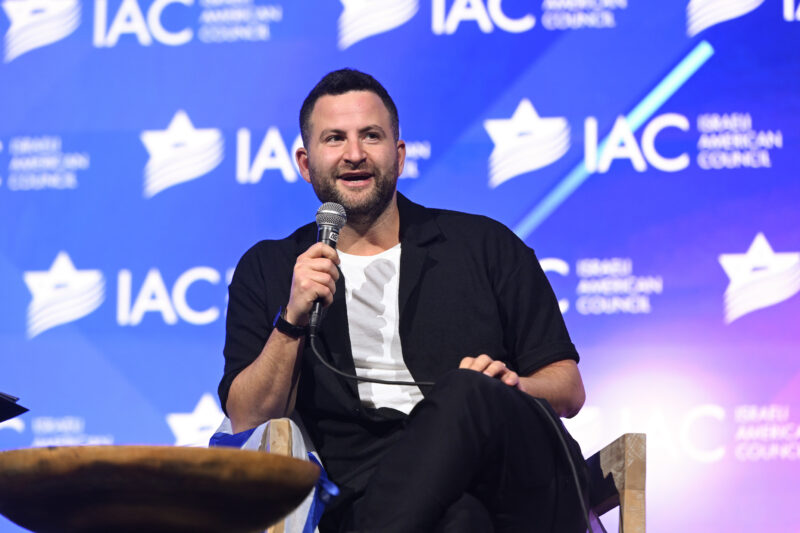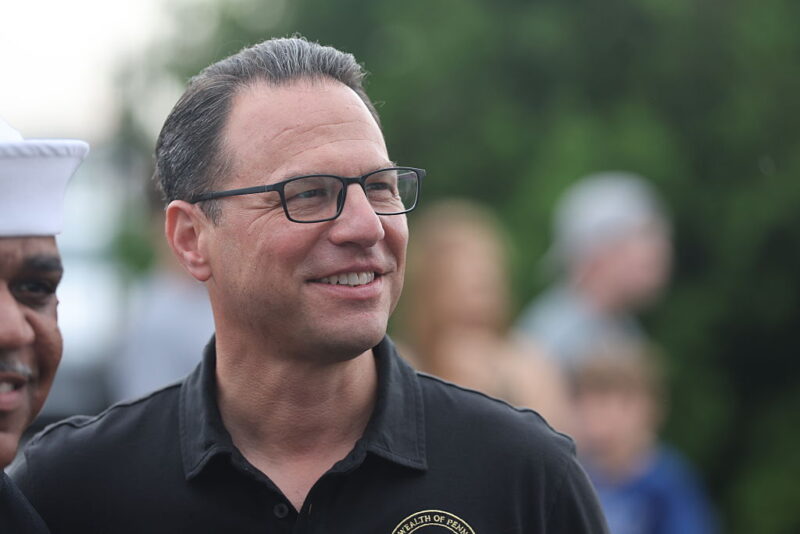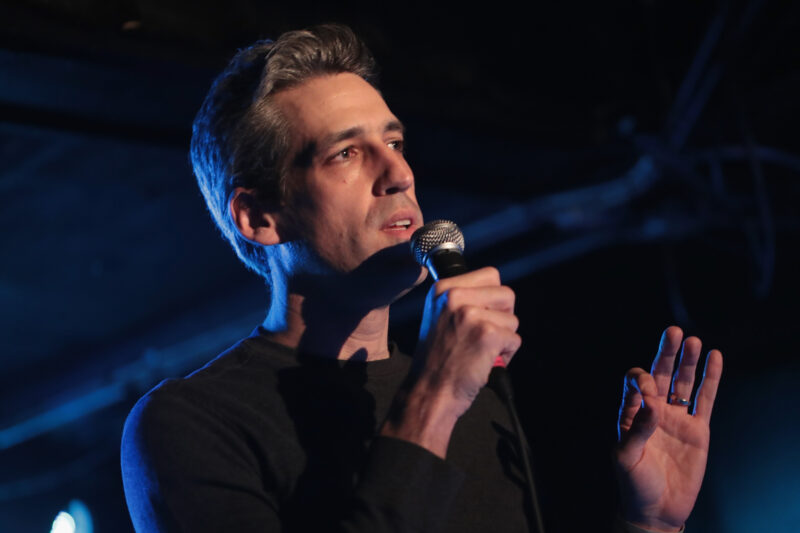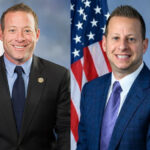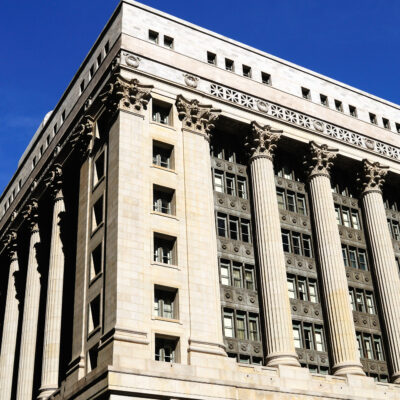U.S. visa ban on extremist settlers causes confusion
Washington seeks to respond to violence in the West Bank, but questions remain about new policy barring settlers who target Palestinians from traveling to U.S.

Gil Cohen Magen/Xinhua via Getty Images
People wait at the departure hall at Ben Gurion International Airport near Tel Aviv, Israel, Nov. 28, 2021.
During a quick visit to Israel on Monday, Defense Secretary Lloyd Austin was armed with the same agenda as the rest of the senior American officials who have traveled to Israel in recent weeks: conveying American support for Israel as it confronts Hamas, cautioning Israel to avoid civilian casualties and pressing for more humanitarian assistance to Gaza.
And like many of the other top Biden administration officials engaging with Israel, Austin was also tasked with discussing another sensitive issue, this one taking place not in Gaza but the West Bank: violence and harassment directed at Palestinians from Israelis in the contested territory.
“Attacks by extremist settlers against the Palestinians in the West Bank must stop. And those committing the violence must be held accountable,” Austin said at a press conference on Monday, standing next to Israeli Defense Minister Yoav Gallant.
Biden administration officials have made clear that they do not believe Israel is doing an acceptable job of holding these offenders to account. Two weeks ago, Secretary of State Tony Blinken announced that the U.S. would be taking the unusual step of punitive action against these settlers — most of whom have not faced criminal charges in Israel — by restricting the ability of individuals involved in such violence to obtain a visa to travel to the United States.
“The Israeli government must do more to act against the unprecedented rise in extremist settler violence, including by holding perpetrators accountable,” a State Department spokesperson told Jewish Insider on Tuesday.
Human rights groups and the United Nations have this year tracked a major increase in Jewish settlers targeting Palestinian civilians in towns throughout the West Bank near Jewish settlements. The State Department spokesperson said the violence “is at levels not seen since the Second Intifada,” citing both Jewish attacks on Palestinians and Palestinian terrorist attacks on Jews. “This includes unprecedented levels of violence by Israeli extremist settlers targeting Palestinians and their property, displacing entire communities, as well as violence by Palestinian extremist militants against Israeli civilians,” the spokesperson said.
Data from Israel’s Shin Bet, responsible for tracking and countering such violence and vandalism, indicate the opposite, that there is less of it since the war began compared to the first two quarters of the year, as well as an over 50% drop in incidents compared to the same period last year. There were 20 cases of minor violent incidents and 10 of vandalism in October this year, compared to 53 and 19 last year.
The visa policy covers both Israeli and Palestinian “extremists,” but it is more likely to have an effect on Israeli settlers, since Israelis gained the ability to travel to the U.S. visa-free earlier this year. They have also been a more frequent target of U.S. officials’ public remarks in recent weeks — including from Vice President Kamala Harris and President Joe Biden, who in October said that attacks on Palestinians by “extremist settlers” were like “pouring gasoline on fire.”
Sources with knowledge of the policy told JI that the visa ban is meant to serve as a deterrent to would-be offenders, and a warning to Israel’s right-wing government that Washington will take action to keep alive its vision for a two-state solution.
Since the U.S. policy was announced, the United Kingdom followed suit with its own visa ban. Last week, the governments of 14 countries and the European Union released a joint statement calling “on Israel to take immediate and concrete steps to tackle record high settler violence in the occupied West Bank.”
But in the two weeks since the U.S. visa ban was announced, many questions about its implementation — and who it will actually impact — remain unanswered.
The timing of the announcement of the policy, coming weeks into the Israel-Hamas war, suggested a connection between Washington’s policy toward settlers and its broader posturing toward Israel, particularly as the White House urges Jerusalem to constrain its war efforts and amid increasing pressure from Democrats for the Biden administration to be tougher on Israel.
“I do also think that there’s a knock-on effect that people in the State Department are not upset about, which is that this is showing Israel that there are red lines in U.S. policy,” said Sarah Yager, Human Rights Watch’s Washington director.
Michael Koplow, Israel Policy Forum’s chief policy officer, argued that, “Were it not for October 7, this would be constant front page news. The level of extremist settler violence is unprecedented and they are taking advantage of the vacuum created by Gaza.”
Two U.S. sources with knowledge of the creation of the visa policy told JI that it was already underway months before the Hamas attack. Israeli newspaper Israel Hayom first reported on the matter in December 2022.
It’s still unclear who the policy will affect. Individuals who could end up having their visas revoked, or future visa applications denied, won’t have to be convicted of a crime. The restrictions will target “individuals believed to have been involved in or meaningfully contributed to undermining the peace, security, or stability in the West Bank,” the State Department spokesperson said. That includes violence against people or property, “or unduly restricting civilians’ access to essential services and basic necessities to include access to food, water, electricity, or medical supplies.”
The State Department spokesperson said that “information is being gathered by U.S. government personnel at our embassy” and in Washington, but declined to share any specific sources of information. State Department human rights reports on the West Bank have relied heavily on information from the UN Office for the Coordination of Humanitarian Affairs in the Occupied Palestinian Territories (OCHA). An OCHA official declined to comment on Tuesday.
Gil Bringer, the former Deputy Director-General of Israel’s Population, Immigration and Borders Authority, led the team working on Israel joining the U.S. Visa Waiver Program. He told JI that the countries do not exchange lists of convicted criminals – settlers or otherwise – but Israel did amend its laws so that the countries’ authorities can ask each other up to 2,000 times per year whether someone trying to enter their borders has been convicted of serious crimes like murder, kidnapping or rape. In some cases, an indictment is enough to ban someone from entering.
The specific matter of “undermining the peace, security or stability in the West Bank,” as the State Department puts it, did not come up in the talks between Washington and Jerusalem, Bringer said. He also noted that the policy is to revoke or not grant visas, but Israelis no longer need visas to enter the U.S.
“It’s not clear to me how they’ll enforce this if it’s not in the framework of the 2,000 questions,” Bringer said. “I know the Americans check publicly available legal information. This is not information Israel is giving the U.S. whatsoever.”
That being said, Bringer noted that “a country can always decide whether to let someone into their borders. If [the U.S.] makes a blacklist, they can always decide not to let those people in, just like [Israel] can.”
Israeli officials have indicated that they do not support the visa ban, so they are unlikely to provide the U.S. with the names of those believed to be committing these acts.
Several human rights groups that track settler violence — B’tselem, Human Rights Watch, Breaking the Silence, the Association for Civil Rights in Israel, Yesh Din and Rabbis for Human Rights — all told JI that while they track these incidents, they do not identify the perpetrators by name.
Israeli Prime Minister Benjamin Netanyahu in November promised to act against “the few who take the law into their own hands,” but he also suggested that reports about rising violence in the settlements are “baseless.” War cabinet minister Benny Gantz and Defense Minister Yoav Gallant both condemned violence by Israelis against Palestinians in a press conference this month while expressing misgivings about the U.S. policy. Both opposed the use of the term “settler violence,” saying it misrepresents the nearly half-million Israelis living in the West Bank, and preferring the term “extremists.” Gantz said that he “suggest[s] our friends be very careful in who they’re speaking out against.” Gallant said that Israel “doesn’t need others to tell us” to pursue those who take the law into their own hands following Palestinian terrorism against Israelis. “It is our responsibility. It is our state. Anyone using violence, certainly shooting, illegally must be arrested and dealt with.”
Settlement leaders have vehemently denied that violence against Palestinians extends beyond a handful of outliers, but Israel’s Shin Bet intelligence agency reportedly warned in October that the settlers’ actions could cause security conditions in the West Bank to deteriorate.
In a Knesset Foreign Affairs and Defense Committee meeting last month, Otzma Yehudit lawmaker Zvi Sukkot said there is “a campaign about ‘violent settlers’ based on B’tselem and Yesh Din that is unfortunately catching on. These are false numbers that are harming the State of Israel. We hear the president of the U.S. talk about it all the time, and Israel does not officially respond, unfortunately.”
Sukkot has been arrested and expelled from the West Bank multiple times on suspicion of violence and vandalism against Palestinians.
Critics of the Biden administration take issue with the visa ban’s targeting of people who have not faced criminal prosecution, and its equating settlers with Palestinian terrorists.
Despite the diplomatic controversy over the ban, it is not expected to have a significant impact. Roughly 500,000 Israelis live in the West Bank, and the visa ban has “targeted dozens of individuals,” according to the State Department spokesperson.
Visa records are confidential, so offenders’ names will not be made public unless they go to the press. Even then, it will be hard to know whether their visas were denied for this reason; they will be told if their applications are rejected, or if their current visas are revoked, but they will not be given the specific reason.
The visa bans differ from policies like the terrorist watch list because they do not deem the perpetrators a threat to the U.S. Rather, the State Department spokesperson said, their “entry or proposed activities in the United States would have potentially serious adverse foreign policy consequences.”
The policy, which stems from a decades-old immigration bill, is invoked somewhat frequently by the Biden administration. This year, individuals from countries including Liberia, Nicaragua, Haiti, Uganda, Russia, Honduras and Guatemala have also faced visa restrictions. The reasons range from actions that undermine democracy to participation in street gangs to human rights abuses.
Please log in if you already have a subscription, or subscribe to access the latest updates.





